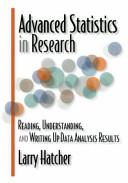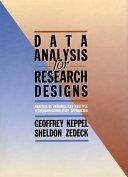
Statistics
A Tool for Social Research and Data Analysis
Extremely student friendly, Healey's STATISTICS: A TOOL FOR SOCIAL RESEARCH AND DATA ANALYSIS, 11e, equips you with a solid understanding of statistical fundamentals and their practical application to current social issues -- no advanced math knowledge required. The text breaks down even the most complex material to help you master key concepts and develop the skills you need as a professional in a social science field -- or simply to become a "statistically literate" consumer of social research. Everyday examples illustrate that statistics are not just abstract mathematical constructs, but they have practical value in government, education, business, media, politics, sports and more. Research examples in every chapter include the same "real data" used by professionals across various fields to make evidence-based decisions. Also available: MindTap digital learning solution.
- ISBN 13 : 9780357371077
- ISBN 10 : 0357371070
- Judul : Statistics
- Sub Judul : A Tool for Social Research and Data Analysis
- Pengarang : Joseph F. Healey, Christopher Donoghue, Christopher Donoghue,
- Kategori : Social Science
- Penerbit : Cengage Learning
- Bahasa : en
- Tahun : 2020
- Halaman : 592
- Google Book : http://books.google.co.id/books?id=t8mjygEACAAJ&dq=intitle:Research+Data+Analysis&hl=&source=gbs_api
-
Ketersediaan :
008035 Tersedia di Library of UI BBC
The text breaks down even the most complex material to help you master key concepts and develop the skills you need to succeed as a professional in a social science field -- or simply to become a statistically literate consumer of social ...









